#OTD on February 11, 1919, the tenth day of the Joint Committee of the Senate and the House in the Investigation of the Texas State Ranger Force (hereafter, “Canales Hearings”) took place in the Texas state capitol.
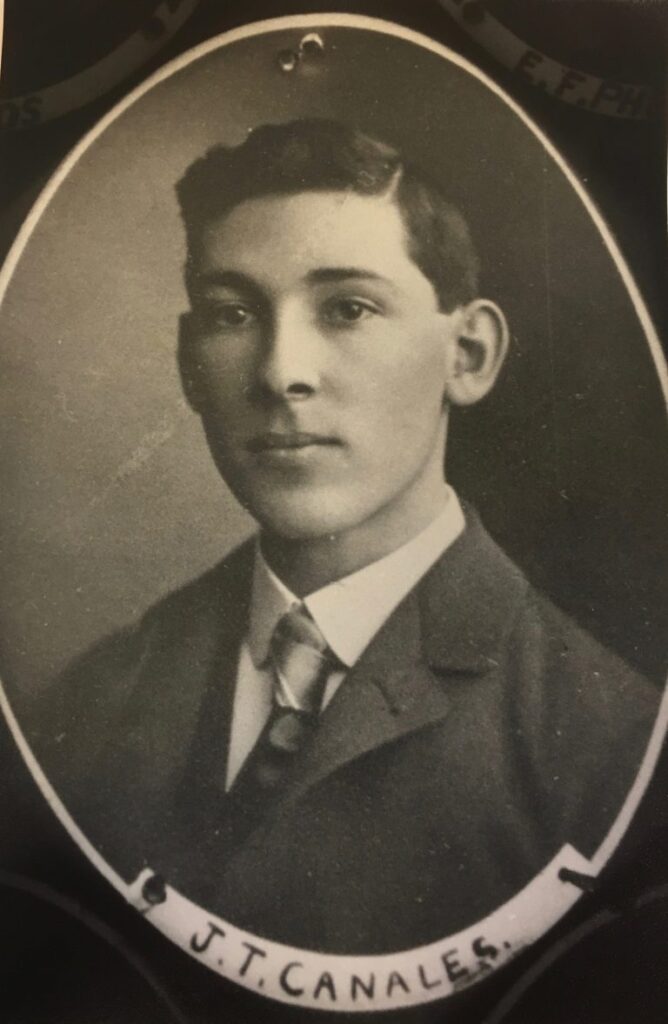
The day’s hearings brought out little new information about specific incidents, but the discussion of 1915-18 border violence repeatedly showed the blurred lines between Rangers and vigilantes, state and private violence, lynching and law enforcement.
Adjutant General James Harley was the first witness. He defended his record, implied that Canales had ulterior motives for his charges, and advised that funding sufficient to pay higher salaries would make Rangers “the pride and protection of the State and its best citizens.”
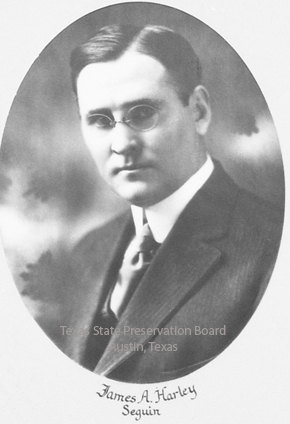
Ranger Attorneys Robert E. Lee Knight and Dayton Moses defended recent years of Ranger violence not by denying specific charges, but by pointing to other forms of violence as presumed justification.
“Mexican soldiers did exactly what [Canales] condemns the Texas Ranger for doing,” said Knight, referring to clashes in northern Mexico with the U.S. soldiers who invaded after Villa’s attack on Columbus, New Mexico in March 1916. https://www.history.com/this-day-in-history/pershing-attacked-by-mexican-troops
Moses soon added a more explicit justification to this implication that military clashes between US and Mexican forces somehow justified state agents killing ethnic Mexican civilians in the US without anything resembling due process.
Just weeks before, a mob in Hillsboro, Texas took Bragg Williams from the county jail and burned him alive. Without naming Williams, Moses compared Rangers who killed ethnic Mexicans to “the people who mobbed that negro up at Hillsboro in broad, open daylight.”
https://refusingtoforget.org/bragg-williams-lynching/
“You don’t feel in your heart that condemnation which you might feel,” Moses concluded, justifying both lynching and extralegal execution by law enforcement officers.
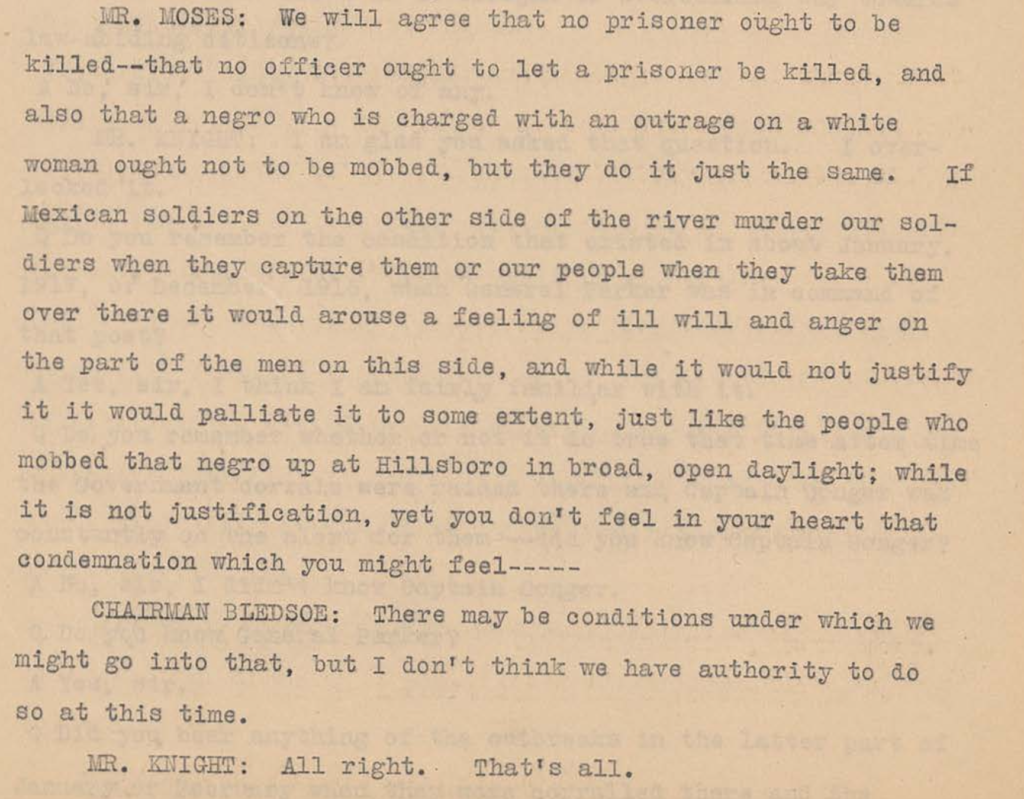
A later witness, South Texas land developer Lon C. Hill, similarly justified Ranger violence rather than denying its reality. Hill was an important figure in S. Texas, as this badly outdated biography makes clear. https://www.tshaonline.org/handbook/entries/hill-leonidas-carrington-sr-lon
Hill received an appointment as a special Ranger the last week of August 1915. According to him, in 1915 Rangers and local agents failed to distinguish between innocent bystanders of raids and legitimate suspects. Rangers arrested “everybody on suspicion.”
Hill explained that Rangers did not always intimidate prisoners themselves because “there are other people that do that.” Local residents formed vigilante groups to respond to fears about Mexican raids and did not hesitate to use brutal methods of interrogation.
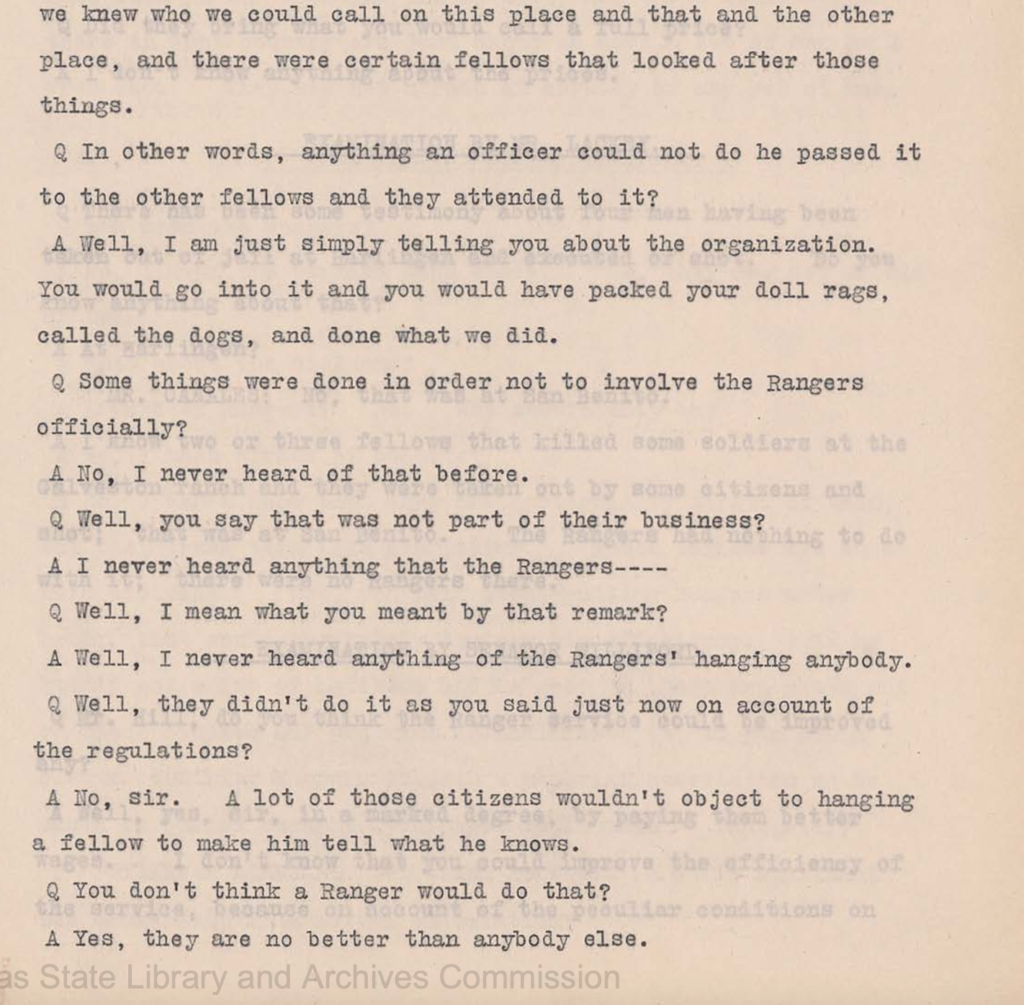
State laws prohibited state agents from brutal interrogations, but Hill admitted Rangers collaborated w vigilantes. Hill: “Yes, they [the Rangers] are not better than anybody else,” & they, too, removed prisoners from jail at night to give them the “third degree.”
Hill blamed all ethnic Mexicans for supporting Plan of San Diego, and expressed the wish that more had fled: “didn’t half go across the river that ought to have gone.”

Their terror was his profit. Hill was known “to terrorize Mexican inhabitants so that they would leave the country and sell what they had for a song to Anglo-Americans,” one man later told a federal investigator. See p115 of @BenjaminHJohns1’s book https://yalebooks.yale.edu/book/9780300109702/revolution-texas
Indeed, Hill became notorious for buying land from widows of men he killed or had killed. After his death, many things in S. Texas named after him: park, swimming pool, library.

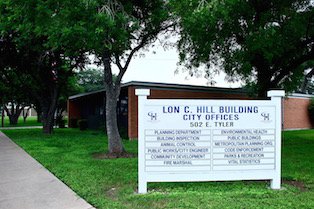
Hill’s testimony, and the arguments of Knight and Davis, signaled that all of the facts that Canales had painstakingly established in the month since had filed his bill might not matter, since Mexican and Black lives did not matter.
This thread is a part of the #OTD in Ranger history campaign that @Refusing2Forget is running this year. Follow this twitter handle or https://refusingtoforget.org/ranger-bicentennial-project/, and visit our website https://refusingtoforget.org/otd-calendar/ to learn more.
Key secondary sources for this thread include:
@BenjaminHJohns1’s Revolution in Texas (pp 169-175)
@MonicaMnzMtz’s The Injustice Never Leaves You (182-216)
Reverberations of Racial Violence
and Ribb, “Reader’s Guide to the Canales Hearings”
A more detailed thread on February 11’s hearings can be found on the centennial “live” tweet of the investigation: https://twitter.com/1919TXRangerInv

